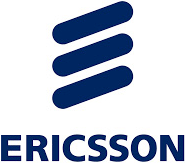How to Hold an Efficient Meeting
Meetings are meant for follow-ups or to find a collective solution to a problem. What often happens is people zone out while one person speaks for an hour. Employees end up walking away annoyed at the wasted time and now the reason you called the meeting goes unresolved.
An office environment without meetings, brainstorming sessions, and conference calls is unlikely. However, you can avoid pointless meetings and wasted time by establishing a process. Your meetings will be more productive and your employees will be happier with the efficiency once you establish a process.
Find a time that works for everyone
As a leader you know how your team functions. If they aren’t morning people, don’t set something up early in the day. Schedule a meeting later in the morning or early afternoon if your team needs a lot of coffee to get going.
In general, avoid creating meetings that begin first thing in the morning or that last until the end of the work day. Beginning office hours should be spent preparing for the meeting and individual talking points. If a meeting is scheduled towards the end of the day, employees may be hard-pressed to think about effective solutions with their evening plans on their minds.
Set an agenda and stick to it
If you are leading a meeting, it is your job to come up with the agenda. Avoid meetings created on the fly or created out of anxiety. More than likely, these meetings will do more to create unease than get anything accomplished. Create a plan by asking yourself these questions:
- What is main topic to be discussed?
- Which secondary subjects need to be covered?
- What will the tone be for this meeting?
- How long should this meeting take?
- What is the objective of this meeting?
Send the agenda in an email to all attendees. That way they will know what will be covered and will be more likely to come prepared with relevant material and input.
Delegate speaking points to your team
In the meeting agenda let certain attendees know that they will be required to speak on specific points. By informing speakers in advance, they will come prepared, which will make the meeting more productive. Delegation makes sure that employees pay attention and makes employees feel essential to the outcome of the meeting.
If you have more attendees than those delegated to speak, ask other attendees for their input with “Joe, do you have any input on Y?”
Stay on topic
Staying on topic is the hardest part of every meeting. It means no side discussions about happy hour that night and no arguments about which direction to take on the subject at hand. Side discussions waste time and decrease productivity. If your meeting stays on topic, and a resolution to the main topic isn’t found, designate another time for a follow-up.
Meetings are successful when they have guidelines for you and your employees to follow. Change is difficult, but you will see a difference in productivity if you establish a process for meeting conduct.




























 By submitting this form you agree to our
By submitting this form you agree to our